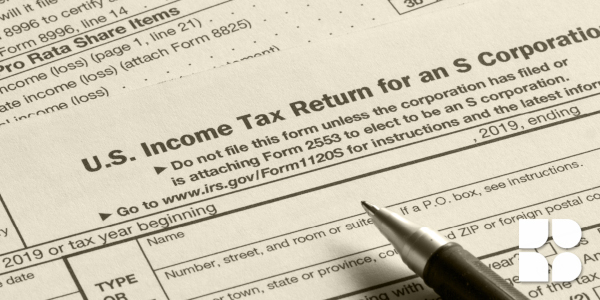Is it better for your LLC to be taxed as an S Corporation?
 There are tons of articles about Limited Liability Companies (LLCs) and S Corporations. But there’s still plenty of confusion about how they work, especially regarding taxes.
There are tons of articles about Limited Liability Companies (LLCs) and S Corporations. But there’s still plenty of confusion about how they work, especially regarding taxes.
So, today’s post will examine whether or not it’s better for an LLC to be taxed as a sole proprietorship or as an S corporation. That way, you can make the best tax strategy possible for your business.
Let’s Go!
Demystifying LLCs and S corporations
First, you must understand that an LLC is a legal business structure, and an S corporation is a tax classification. So, an LLC can ask to be taxed as an S corporation.
Regardless of its tax status, an LLC protects you from double taxation. Unlike some entities, like C corporations, that get taxed on profits and dividends, taxes from an LLC pass through the business and are recorded on the owner’s personal tax return.
And while pass-through taxation is better than double taxation, it’s not great in some situations.
That’s because, by default, the IRS taxes LLCs like a sole proprietorship if there is only one owner. So, the owner pays the self-employment tax rate until the maximum annual Social Security contribution is reached.
That can add up to a lot of money.
That’s when it can be beneficial to apply to be taxed as an S corporation instead of as a sole proprietor.
Here’s why.
The potential S corporation tax advantage
An S corporation owner can list themselves as an employee of the company. That means they don’t have to pay sole proprietorship tax rates.
They pay themselves through regular payroll, ideally less than the company’s total profits. So, they only pay payroll taxes on their income, which can save money at tax time.
Here’s an example.
Let’s say Joe has an LLC. In 2023, his LLC made an annual profit of $200,000. Joe will pay self-employment tax rates on the entire $200,000 as an ordinary LLC owner.
But as an S corporation, Joe can pay himself an annual salary of $100,000. The profits would still be subject to income tax, but he could substantially reduce his company’s payroll tax burden.
A word of caution
It might be tempting for Joe to take a salary of $1 and take the rest in distributions, which don’t require employee taxes. That’s a non-starter for the IRS. They require the salary to be “reasonable.” And they put no dollar amount on what reasonable might be.
So, consult a CPA on what kind of salary the IRS might accept for your situation.
Other S corporation considerations
Just because an LLC applies for S corporation tax status does not mean it will be granted. It has to be a domestic corporation, and all shareholders must be U.S. citizens. And some businesses don’t qualify.
The complete list of IRS restrictions is too exhaustive for this post, but you can view it here.
There are also other requirements. An S-corporation must have a board of directors, so the owner has less control. Also, initial and annual filing requirements can add up to more fees than an LLC.
The Bottom Line
Like many other things in business, whether or not to file for tax status as an S corporation is based on many variables. And while the simple example in this post shows that S corporation status may be tax advantageous, the decision to file shouldn’t be made on just one case.
It’s best to sit with your CPA to determine if you qualify for S corporation status and if the extra paperwork and regulations make it the best alter